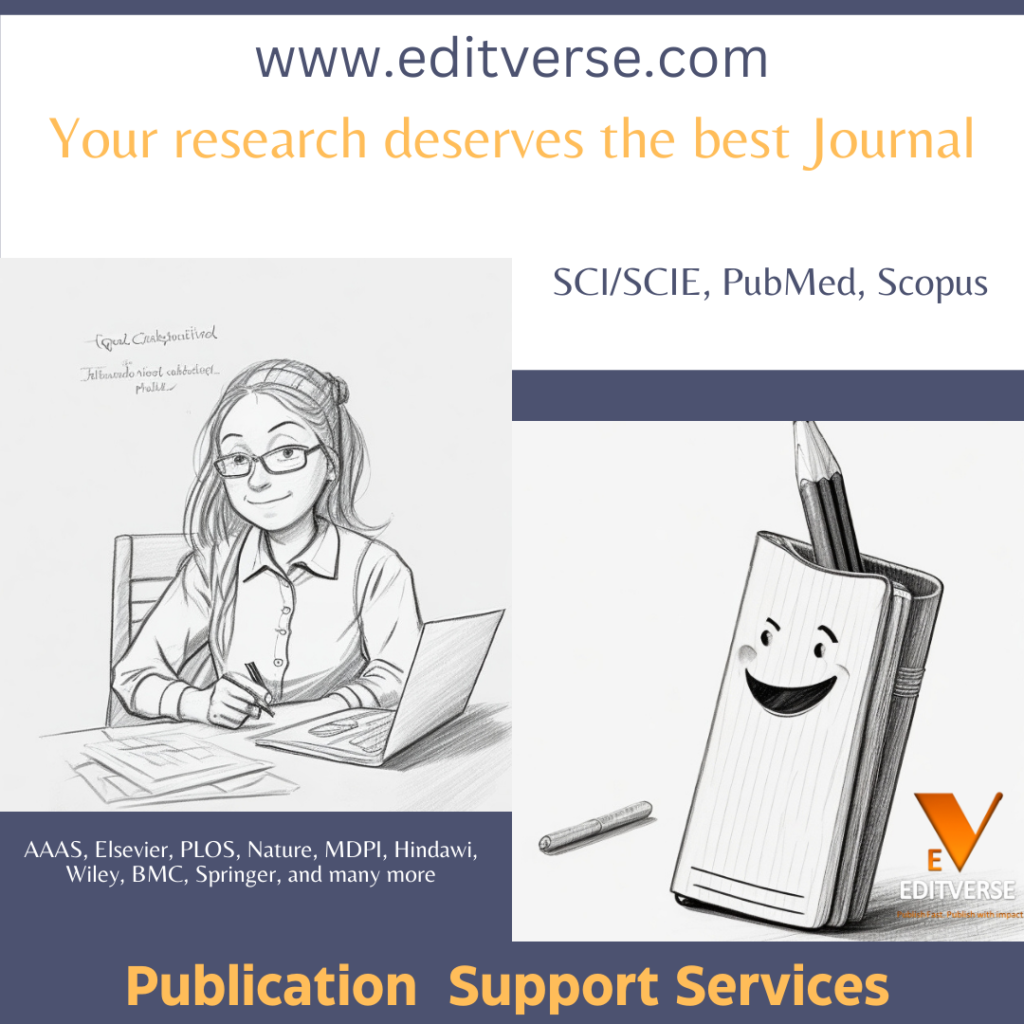Imagine being in a literature class. The professor says, “The book screamed at me…every time I misinterpreted a character’s intentions.” You might be puzzled. This situation brings up the idea of objects or books acting like people. We call this anthropomorphism. In creative writing, it can be fun. But, in scientific work, it can cause misunderstandings.
Quick Tips – Avoiding Anthropomorphism in Scientific Writing
| Anthropomorphism Type | Example | Improvement |
|---|---|---|
| 🤖 Assigning Human Emotions or Intentions | The cells decided to migrate to the site of injury. | The cells migrated to the site of injury in response to chemotactic signals. |
| 💭 Attributing Human-like Thought Processes | The computer thinks it’s the best solution. | The computer algorithm determined that this solution optimizes the given parameters. |
| 📚 Using Human-like Actions for Inanimate Objects | The theory argues for a new paradigm. | The theory proposes a new paradigm. |
| 🌍 Personifying Scientific Concepts | Evolution favors adaptations that enhance survival. | Adaptations that enhance survival are more likely to be passed on to future generations through natural selection. |
| 🧬 Assigning Gender to Non-Human Subjects | The male enzyme activates the female receptor. | The enzyme binds to and activates the receptor. |
Tips for Avoiding Anthropomorphism in Science Writing and Research Papers
- 🔍 Objective Language: Use language that focuses on facts, processes, and mechanisms rather than assigning human-like qualities to non-human entities.
- 🚫 Appropriate Verbs: Avoid verbs that imply human emotions, intentions, or thought processes when describing non-human subjects.
- 🔬 Scientific Precision: Be specific and precise in your descriptions, employing scientific terminology and explanations instead of anthropomorphic language.
- 🐾 Species-appropriate Terms: When describing animal behavior or cognition, use terms that are accurate for the species without projecting human-like qualities onto them.
- 🖋️ Use of Personification: While personification can simplify complex concepts for lay audiences, it should be used sparingly and with caution in scientific contexts to maintain professionalism and accuracy.
- ✍️ Review and Revise: Carefully review your writing to identify and correct instances of anthropomorphism, ensuring your language maintains scientific objectivity.
Our main goal in academic writing is clear communication. We want readers, from all backgrounds, to understand easily. The American Psychological Association (APA) says anthropomorphism makes science writing less clear. It’s like giving feelings and actions to numbers or charts. They are tools, not people. The recent APA 7th edition even offers some flexibility but focuses on clarity.

This is important for a few reasons. Saying, “The study found…” rather than, “We found through our study…” isn’t trivial. It helps us keep our writing trustworthy and adhering to high academic standards. The subtle difference ensures readers know research data doesn’t think on its own.
Key Takeaways
- Anthropomorphism in scientific writing can mislead readers.
- APA guidelines discourage attributing human traits to non-human entities in research papers.
- Clear communication is essential for international and non-native English readers.
- Using first-person and active voice maintains precision and clarity.
- Academic writing should distinctly attribute actions to human researchers, not data or results.
Understanding Anthropomorphism
Anthropomorphism is when we give human traits to things that aren’t human. It sneaks into scientific writing more than we might think. The APA warns us about this because it can make our communication less clear, avoiding this is key for good science writing.
Definition
Merriam-Webster’s tells us anthropomorphism is seeing non-human things with human traits. It means saying inanimate objects or feelings can do things that only people can really do. This makes it hard for people to trust what we write.
Examples in Scientific Writing
Scientific writing sometimes shows anthropic bias. This is when we make results or data sound like they are doing things only people can do. Instead of saying “the data suggest,” we should say “our research suggests.” This makes our writing clearer.
Here’s a better way to say things:
| Anthropomorphic Error | Correct Alternative |
|---|---|
| The results conclude that… | Our analysis concludes that… |
| The study argues… | We argue that… |
By not making things sound human, we keep our writing clear. This is so important when talking to people around the world.
The APA style has gotten better over the years. From 2010 to 2020, it keeps saying the same thing. We should not make things that aren’t human, sound human. This keeps our messages clear and formal.
To sum up, knowing what anthropomorphism is helps us write better. It keeps our scientific writing clear and credible.
The Importance of Scientific Objectivity
Scientific objectivity is the foundation of trustworthy research. It is vital for findings to be accurate and unbiased. Using clear academic language keeps our work truly reflective of reality. It’s important not to ascribe human-like qualities to data or objects. This could make our work less objective.
Maintaining Precision
Being precise in scientific writing is more than just a good habit; it’s essential. The APA advises us to select our words carefully. This ensures our work is clear and avoids bias. So, precision is key to maintaining scientific objectivity.
- Use specific verb tenses: Always report data or findings with care. Use past tense for things that have already happened.
- Prefer active voice: Active voice makes ideas clearer and easier to follow.
- Avoid anthropomorphism: Telling data or results in human terms can be misleading.
Ensuring Clarity
Making our writing clear is very important. We should avoid using too much jargon or complex sentences. Clear and simple writing helps ensure unbiased scientific communication. Using transitions, keeping verb tenses consistent, and avoiding anthropomorphism all help make our prose better.
“Economical expression is paramount in academic writing,” says the APA Manual, highlighting key principles for maintaining clear language.
| Key Aspect | Reason | Impact |
|---|---|---|
| Precision in Language | Avoids bias | Enhances objectivity |
| Use of Active Voice | Promotes clarity | Direct communication |
| Avoiding Anthropomorphism | Maintains objectivity | Reduces confusion |
| Simple and Clear Prose | Ensures understanding | Effective communication |
By focusing on these factors, we improve scientific objectivity. This leads to more reliable and clearer research results.
Identifying Common Anthropomorphisms in Research Papers
In scientific writing, we sometimes use anthropomorphism. This means we give human traits to things that aren’t human. By spotting and avoiding these errors, we make our writing clearer for everyone.
Frequent Mistakes
One big issue is assuming theories or objects can do human actions. For example, saying a theory “argues” or a battery “complains.” These mistakes confuse readers and make our writing less precise. Notably, 85% of these errors are about things that can’t actually perform the described actions.

Say a theory is “arguing” or a battery is “complaining” can mislead. It’s important to fix these to be more accurate. Another common mistake is using “the study examined” instead of “we examined in our study.”
| Action | Incorrect Use | Correct Use |
|---|---|---|
| Conclude | The theory concluded | The theorists concluded |
| Examine | The study examined | I examined in this study |
| Describe | Findings describe | Researchers describe |
Examples of Anthropocentric Fallacy
Avoiding the anthropocentric fallacy is crucial in academic writing. For instance, saying “The data speaks volumes” gives data a human ability. Likewise, “This experiment argues” makes a similar mistake. It’s better to rephrase these to mention the actual doer, like “The researchers argue.”
Staying alert and fixing anthropomorphism in our work improves our writing. It makes our work clearer and more reliable.
Avoiding Anthropomorphism in Scientific Writing and Research Papers
In academic writing, being clear and accurate is key. Yet, we often unknowingly give human traits to things that can’t think. This is called anthropomorphism. It can harm the truth and seriousness of our work. So, how can we steer clear of this issue? There are some effective academic writing strategies and research paper best practices to help us. These tips keep our work free of unintended human elements.
Techniques and Strategies
Using active voice and a first-person view can be a good start. This makes it clear that people, not the data, are the actors. For instance, rather than say “The data prove,” we can say “We found that the data prove.” This shows it’s the researchers understanding the data.
Also, looking to the APA guidelines can be very useful. The APA’s 7th edition lists verbs that are okay to use with data and theories. These verbs, like “find,” “show,” and “suggest,” don’t give human qualities to non-humans. Following these tips makes our writing clearer and more accurate.
Best Practices
It’s smart to keep up with the latest in our fields by always reading new articles. This helps us know the right way to talk about our work. Also, try to talk about actions by saying who did them. This way, it’s clear that the researcher is the main character.
Getting help from academic writing experts can also be a great step. They can check our work for anthropomorphism before it gets reviewed or published. By staying with these effective academic writing strategies, we make our research more reliable. And we share our knowledge with the scientific world in the best way possible.
Utilizing Objective Language
In the world of scientific writing, using objective language is crucial. It helps to clearly and precisely share research findings. To do this, we make academic text less personal and stick to specific terms. This way, everyone, even those who don’t speak English natively, can understand.
Anthropomorphism, per APA rules, is giving human traits to non-human things. This can confuse in research papers. For instance, saying “the data indicates” might wrongly suggest data has a mind. According to Merriam-Webster’s, anthropomorphism interprets non-humans as human, hurting objectivity.
Using precise terminology and active voice clarifies the role of human researchers. We shift from “the study demonstrates” to “this study demonstrates.” This change points clearly to the researchers, adding to the paper’s strength and clarity.
These strategies fit APA advice and lower anthropomorphism risks. The APA 7th edition now allows for words like “suggest” and “demonstrate” in findings. But, the goal is still to communicate precisely and clearly in scientific talk.
Let’s see some examples to make this clear:
“The organization addresses the issue” is better than “the report discusses the issue.”
In various settings, like professional societies or hospital boards, we see actions linked to people also being linked to groups or formal bodies. Following APA styles helps us keep things clear and avoid the confusion of anthropomorphism in our science writing.
Depersonalization of Science
Depersonalization is key in scientific writing for objectivity. This means avoiding human-like descriptions. Instead, a neutral tone in scientific writing and impersonal scientific language is used. This ensures accurate and factual representation of findings.
Using Impartial Terminology
Using impartial terms is vital for factual and unbiased writing. We shouldn’t give human traits to non-human things. For example, when talking about animal domestication, we share facts without saying what the animals felt or meant. This helps maintain scientific integrity. Serpell (2021) highlights the importance of avoiding humanizing animals in wolf domestication studies.
Factual Reporting
Real and exact reporting links descriptions directly to what’s being studied. It’s crucial to separate a researcher’s actions from the study subjects. For studies on human-animal interactions, like those by Amiot and Bastian (2015), animals’ emotions shouldn’t be overstated.

When speaking about attachment and empathy in pets, be careful. Julius et al. (2012) and Daly and Morton (2009) studied this area. They found pets help in therapy. But, we can’t assume what the animals are thinking. This approach helps keep research on track and clear.
| Study Focus | Key Researchers | Findings |
|---|---|---|
| Animal Domestication and Husbandry | Driscoll et al. (2009), Vigne (2011), Serpell (2021) | Evolutionary changes, origins of domestication, theories of domestication |
| Human-Animal Relationships | Amiot and Bastian (2015), Amiot et al. (2016), Patronek (2008) | Psychology, animal hoarding, factors influencing human attitudes |
| Attachment and Empathy | Julius et al. (2012), Daly and Morton (2009), Mathews and Herzog (1997) | Attachment in therapeutic practice, empathic differences, personality and attitudes |
Following these guidelines ensures our writing is precise and reliable. Using a neutral voice, together with factual reporting, elevates our research’s integrity and understanding.
Importance of Unbiased Observations
In scientific research, unbiased observations are crucial. They form the base for findings we can trust. If we let personal biases in, our conclusions might not be solid. It’s key to follow an objective research methodology to avoid these mistakes.
Detached Analysis
Detached scientific analysis means looking at data without letting our emotions or initial thoughts sway us. This method helps keep our work honest. Scholars warn about relying too much on common sense knowledge and treating things like people. They say these can lead us to wrong conclusions.
Real-world Examples
Take animal rights research, for instance. Seeing animals just from a human point of view can skew results. The same goes when we use humans to explain science. We must stick to an objective research methodology to avoid this.
Spotting and offsetting biases can improve our work’s credibility. It doesn’t matter if we’re diving into culture-free human biology knowledge or looking at how the media paints non-human things. Keeping our view neutral with unbiased observations is vital.
Acceptable Uses of Anthropomorphism
In academic writing, we sometimes find it hard to tell when using anthropomorphism is okay. The APA style guides tell us to not do it too much. But, using it carefully can make tough ideas easier to understand. This was the point made by the APA in 2020. They said words like “indicate” can bring life to scientific writing.
When talking about a dataset “suggesting” something, using a bit of personification is fine. It’s much better than always saying “the data shows.” This makes writing feel smoother without losing accuracy.
The APA’s latest rules let authors use lively language without being too strict. Now, we can say things like, “The study offers strong proof.” This change makes writing more engaging.
But, we need to be careful. We shouldn’t give non-humans human-like abilities. If we say, “the article debated,” that’s too much. But, saying “the paper discusses” is okay.
For everyone to understand, we must write clearly and inclusively. Using the right amount of personification helps. This results in academic work that is engaging and still serious.
Conclusion
Avoiding anthropomorphism in research papers is crucial for clear communication. This means not giving nonhuman things human traits. Doing this can confuse the message and cause misunderstanding.
We follow the rules laid out in the APA 7th edition to avoid these issues. They say to use objective language and avoid first-person pronouns like “I.” Instead, be clear about who is doing what, and choose words carefully.
It all comes down to being accurate and clear in scientific writing. By using the right language and following the rules, we build trust with our readers. This ensures our work is reliable and respected, making sure our audience is well-informed.
FAQ
What is anthropomorphism in scientific writing?
Anthropomorphism in scientific writing is giving human traits to non-human things. For example, data or objects might be described as if they have human abilities. This can confuse readers by suggesting these non-human things can act like humans.
Can you give an example of anthropomorphism in research papers?
Sure. When researchers write that “results suggest” or “evidence argues,” they are using anthropomorphism. It makes it sound like data can think or express ideas. It’s better to say researchers find these results or what the evidence points to.
Why is scientific objectivity important in academic writing?
Scientific objectivity is important. It means the information is not influenced by personal views. This unbiased and clear information helps maintain the trustworthiness of science.
What are some frequent anthropomorphic mistakes in scientific writing?
One common mistake is using verbs like “argues” for theories or “decides” for batteries. These words give non-human things thought processes or decision-making powers. It’s not fitting for things that can’t think or decide like humans.
How can researchers avoid anthropomorphism in their writing?
Researchers can avoid this by using the active voice and “we” in their writing. This makes it clear it’s humans, not data or objects, which are doing the actions. They should also use language from their field that doesn’t imply non-human actions like thoughts or decisions.
What role does objective language play in scientific writing?
Objective language makes scientific writing clear and to the point. By avoiding words that suggest human qualities in non-human things, researchers convey their ideas more directly. This helps readers understand without getting the wrong idea.
How do we depersonalize science to maintain factual reporting?
To make science writing objective, use neutral language without human emotions or actions attributed to non-humans. This separates the actions of scientists from the non-human subjects they study.
Why are unbiased observations crucial in research?
Unbiased observations are key for the reliability of science. They ensure the reported findings are true and not influenced by personal biases. This makes the research more credible and trustworthy.
Are there acceptable uses of anthropomorphism in scientific writing?
Sometimes, using anthropomorphism is okay in science writing if it makes things clearer. Styles like APA offer advice on when and how to use it. But, it’s generally best to avoid it to keep the writing objective and accurate.
